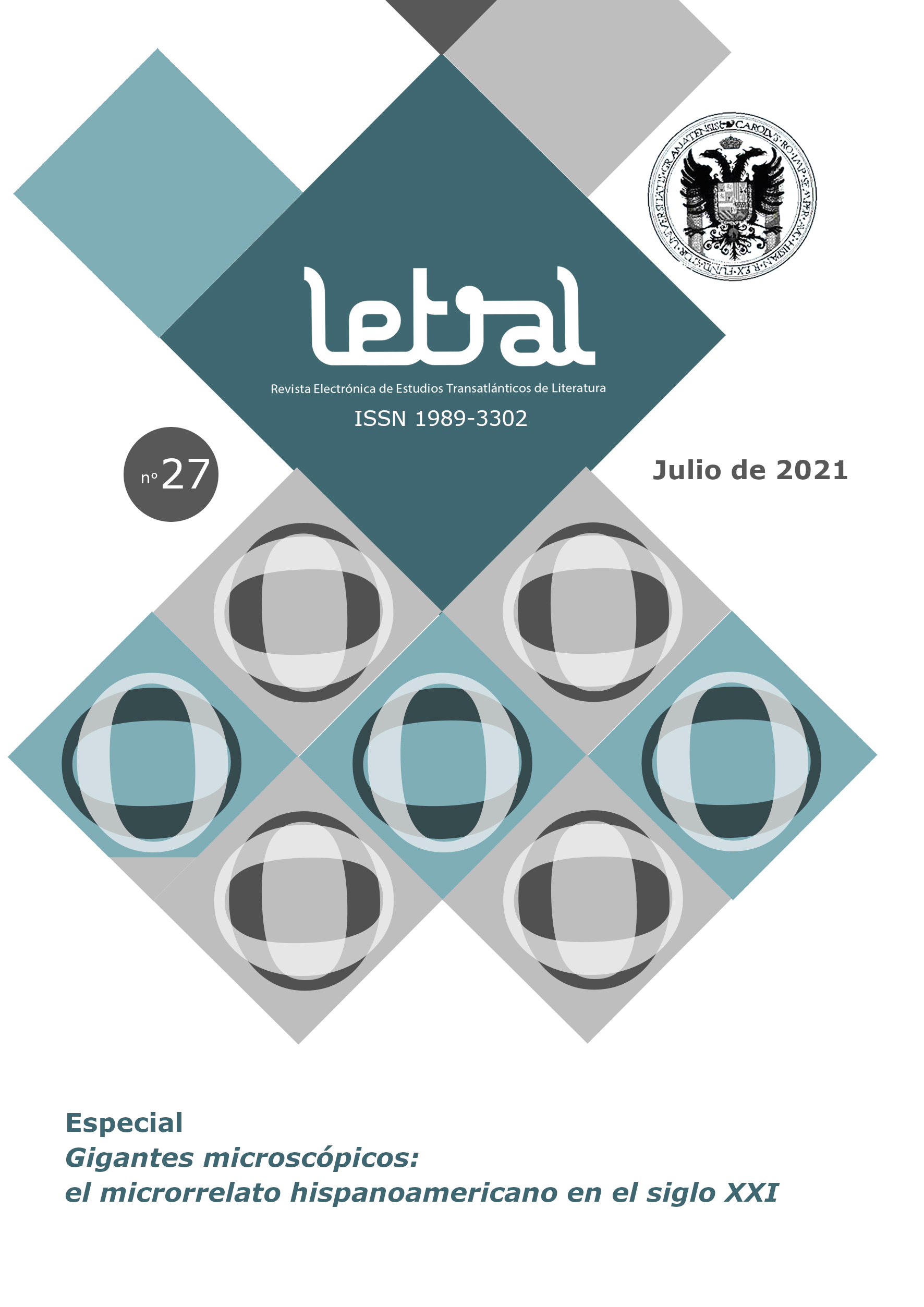Una rebelión fractal. La distopía caribeña de Luis Othoniel Rosa
DOI:
https://doi.org/10.30827/rl.v0i27.20777Palabras clave:
Luis Othoniel Rosa – Piglia - dystopia – post-capitalismResumen
La presente nota propone una lectura de la novela Caja de fractales (2017) del escritor puertorriqueño Luis Othoniel Rosa, a partir de una pregunta de Alan Pauls: ¿cómo responde esta narración al interrogante sobre los límites del capitalismo? El trabajo se divide en dos secciones. En la primera repasamos la relación de Rosa con Ricardo Piglia a través de sus clases en Princeton, y la influencia ejercida por el escritor argentino en la obra del puertorriqueño, particularmente en Caja de fractales. En la segunda, analizamos la respuesta de Rosa al mencionado interrogante de Pauls, tomando en cuenta el interés del autor en el anarquismo. Nuestra hipótesis es que para la novela efectivamente es posible pensar un afuera del capitalismo, y que esa posibilidad no es solo imaginaria sino también propositiva. El texto invita a pensar la manera de abrir canales de solidaridad en un mundo que se plantea despiadado y opresivo.
Descargas
Citas
Díaz Quiñones. “Ricardo Piglia, los años de Princeton”. 80 grados (revista digital), marzo de 2015, https://www.80grados.net/wp-content/uploads/Ricardo%20Piglia-Princeton.pdf.
Duchesne, Juan. “Reseña de Caja de fractales de Luis Othoniel Rosa (Puerto Rico)”. El roommate. Colectivo de lectores, 2019, https://elroommate.com/2021/01/18/juan-duchesne-resena-caja-de-fractales-de-luis-othoniel-rosa-puerto-rico/.
Fisher, Mark. Capitalist Realism: Is There No Alternative? Winchester, O Books, 2009.
Alan Pauls y Nicolás Helft. El factor Borges nueve ensayos ilustrados. Buenos Aires, Fondo de Cultura Económica, 2000.
Jameson, Fredric. “Postmodernism, or the Cultural Logic of Late Capitalism”. New Left Review, n.o 146, 1984, pp. 53-92.
Ledesma, Jerónimo. “El ‘efecto Piranesi’ de Thomas De Quincey como procedimiento ficcional en Borges”. Estudios de teoría literaria. Revista digital: arte, letras y humanidades. Nº 17, 2029, pp. 64-86. https://fh.mdp.edu.ar/revistas/index.php/etl/article/download/3738/3732
Mendoza, Juan José. “Perdidos en Princeton”. Los archivos: papeles para la nación, Eduvim, Villa María, 2019, pp. 75-84.
Piglia, Ricardo. El camino de Ida. Barcelona, Anagrama, 2013.
Piglia, Ricardo. La forma inicial. Conversaciones en Princeton. Buenos Aires, Eterna Cadencia, 2015.
Rosa, Luis Othoniel. Caja de fractales. Buenos Aires, Entropía, 2017.
Rosa, Luis Othoniel. Comienzos para una estética anarquista: Borges con Macedonio. Santiago de Chile, Cuarto proprio, 2016.
Rosa, Luis Othoniel. Comienzos para una estética anarquista: Borges con Macedonio. Buenos Aires, Corregidor, 2020.
Rosa, Luis Othoniel. “Notas sobre el profesor Piglia en un cuaderno”. Penúltima. Una revista literaria, 2017, http://revistapenultima.com/notas-sobre-el-profesor-piglia/.
Rosa, Luis Othoniel. Otra vez me alejo. Buenos Aires, Entropía, 2012.
Rosa, Luis Othoniel. “Traiciones en El camino de Ida”. Cuadernos Lírico, https://journals.openedition.org/lirico/7670.
Silva, Guadalupe. “La fábula infinita. Sobre Otra vez me alejo de Luis Othoniel Rosa”. Exlibris, n.o 2, 2013, pp. 226-28. http://revistas.filo.uba.ar/index.php/exlibris/article/view/385/254
Descargas
Publicado
Cómo citar
Número
Sección
Licencia
Revista Letral es una publicación de acceso abierto e inmediato totalmente gratuita, tanto para quien lee como para quien publica. Los autores y las autoras no pagan ningún tipo de tasa por el proceso editorial de sus artículos. Permitimos la lectura, descarga, copia, distribución, impresión, búsqueda, enlace o reutilización con fines no comerciales de todos los trabajos publicados, siempre que se citen la autoría, la revista y el órgano editor. Recomendamos encarecidamente la difusión de los artículos en redes sociales (Facebook, Twitter, LinkedIn, etc.) y científicas (ResearchGate, Academia.edu, etc.), repositorios institucionales universitarios y otros repositorios públicos, blogs y webs personales o institucionales, Google Scholar, ORCID, ResearchID, ScopusID, etc. En cualquier caso, la propiedad intelectual de los artículos y los posibles derechos económicos derivados de ellos son exclusivamente de sus autores.














